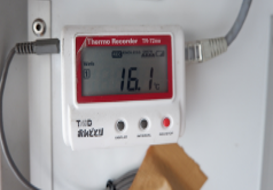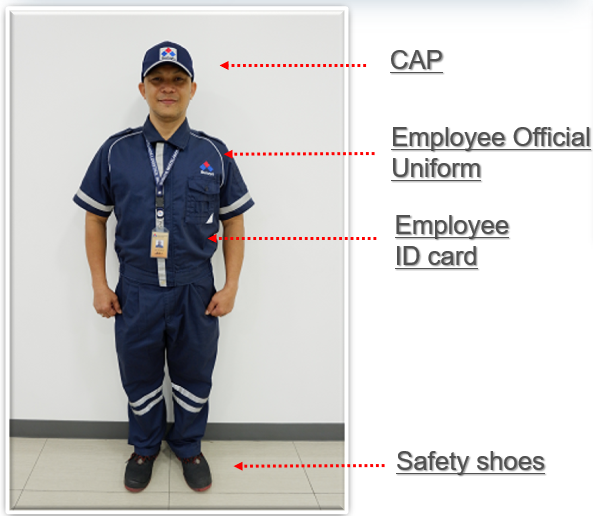Column
What is Cold Chain Logistics? _Transforming Food Transport in the Philippines

What comes to mind when you think of the Philippines? Many envision a warm, tropical paradise. However, its hot and humid climate poses significant challenges for transporting temperature-sensitive food products. Improper handling during transportation often results in spoilage and waste.
In this article, we introduce Suzuyo’s refrigerated and frozen logistics services—designed to preserve food quality even in the challenging conditions of the Philippines.
Table of Contents
The Philippines' Economic Growth and Rising Interest in High-Quality Food
In Japan, it’s standard practice for frozen and refrigerated products to be transported under strict temperature control. However, in the Philippines, many goods are still transported without adequate temperature management. For instance, ice cream sold locally often shows signs of melting and reshaping during transport. Similarly, vegetables transported from highland regions frequently arrive in poor condition or are discarded altogether due to a lack of proper low-temperature transportation.
With rising income levels, Filipino consumers are increasingly seeking visually appealing, high-quality food products. The key to maintaining the quality of these products lies in temperature-controlled transportation.
With the second-largest population in Southeast Asia, the Philippines presents a promising market for the food service and manufacturing industries. Around Manila, the capital, numerous well-known Japanese restaurant chains have established a presence. The country has experienced consistent economic growth in recent years, with the middle class expanding significantly from 45% of the total population in 2000 to 70% in 2020. As living standards improve, so does the demand for higher-quality food. Consequently, it's becoming increasingly common to find premium imported frozen foods from Japan in local supermarkets.
Key Challenges in Philippine Logistics
In the Philippines, many Japanese-affiliated logistics companies do not operate their own fleet for refrigerated and frozen transportation. Even among local companies, many do not thoroughly manage temperatures during transport, which is crucial for food logistics. This has led to frequent instances of product spoilage and disposal. Furthermore, many companies face issues with driver management, resulting in frequent cases of unscheduled absences that disrupt vehicle operation and cause significant delivery delays.
To address these challenges in transportation quality and operational efficiency, Suzuyo has introduced a refrigerated and frozen logistics system that matches the high standards of Japan. This innovation makes Suzuyo the first Japanese-affiliated logistics company in the Philippines to offer refrigerated and frozen transport services using its own fleet.
Suzuyo’s commitment to excellence ensures better temperature control, reduced waste, and reliable delivery schedules, setting a new benchmark for logistics in the Philippines.
What is Cold Chain (Refrigerated and Frozen) Logistics?
Cold chain transport is a logistics method used to ship temperature-sensitive products, such as food and pharmaceuticals, under consistently low-temperature conditions. At Suzuyo, refrigerated transport is maintained between 0°C and 10°C, suitable for items like vegetables and vaccines. Frozen transport is managed at temperatures at -25°C, ideal for products such as ice cream and frozen foods.
Three Core Strengths of Suzuyo’s Cold Chain Logistics
Here’s how Suzuyo stands out in providing top-quality refrigerated and frozen logistics services in the Philippines:
(1) High-Quality Vehicles
Suzuyo utilizes highly reliable vehicles and refrigeration unites manufactured by trusted Japanese companies. This allows transportation of a wide range of products across a broad temperature range, from ambient to -25°C.
Additionally, the trucks are equipped with movable partitions, enabling simultaneous transport of products at two temperature zones (refrigerated 0~10℃ and frozen -25℃). This dual-temperature capability enhances flexibility and efficiency.

(2) Advanced Vehicle Management
Suzuyo manages its vehicle operation with real time GPS tracking of vehicle locations, ensuring precise operational control. Departure times are adjusted daily based on traffic conditions to avoid pickup and delivery delays. This eliminates the uncertainty of late or missing deliveries.
Real-time temperature monitoring is maintained via onboard thermometers, ensuring strict temperature control. Our trucks are equipped with multiple thermometers to accurately measure the temperature in dual-temperature shipments. In the unlikely event of a thermometer failure, backup devices ensure continuous monitoring.
By managing all transport with our own fleet and without relying on external partners, we guarantee these high standards are maintained across all our vehicles.


(3) Comprehensive Employee Training
Employee training, which is often overlooked by local transport companies, is a cornerstone of Suzuyo’s operations. Suzuyo employees receive thorough training in 5S methodology (Sort, Set in Order, Shine, Standardize, Sustain), ensuring professionalism in every aspect. Employees adhere to strict standards, such as wearing uniforms, carrying ID cards, cleaning vehicles daily, and wearing safety shoes. To mitigate the risk of accidents, we also conduct pre-departure alcohol and temperature checks, mirroring practices in Japan.
Unlike many local transport companies where employee tardiness and absenteeism can disrupt schedules and cause delivery delays, Suzuyo's robust employee management practices ensure on-time performance.
Examples of Our Cold Chain Logistics Service in Action
Customer Overview
● Industry: Café
● Products: Temperature-sensitive food items such as cakes
Customer’s Challenges
Frequent Delivery Delays Leading to Lost Sales Opportunities
The café experienced frequent delivery delays with their previous local transport provider. Vehicles often failed to arrive on time, or drivers would take sudden leave, disrupting scheduled deliveries. Additionally, the transport company relied on subcontractors for pickups and deliveries. This resulted in delivery delays for over 50% of all shipments, leading to significant lost sales opportunities for the café.
Improper Temperature Control Leading to Product Waste and Customer Dissatisfaction
Inadequate temperature control during transport caused cakes to melt and lose their shape. These damaged products had to be discarded, resulting in frequent shortages and incomplete deliveries. These stockouts at the café directly impacted customer satisfaction.
Suzuyo’s Cold Chain Transport Solutions
Achieving On-Time Delivery
Suzuyo's commitment to robust employee management and the use of our own fleet and drivers eliminates the delivery delays previously caused by unscheduled absences.
Eliminating Waste and Lost Sales Opportunities
Because transport now takes place in a temperature-controlled environment, the issue of products melting during transit has been resolved. This has eliminated the lost sales opportunities previously caused by spoilage. Suzuyo provides real-time temperature records during transport, providing the café with peace of mind and verification of proper temperature maintenance.
Summary
As highlighted in the beginning, the demand for quality food in the Philippines continues to grow alongside its economic expansion. However, the infrastructure for temperature-controlled transport, crucial for food logistics, is still developing.
For businesses transporting temperature-sensitive goods in the Philippines, we encourage you to consider Suzuyo’s cold chain logistics services.


